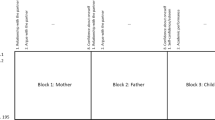Abstract
A dynamic principal component analysis is proposed to monitor the stability, and detect any atypical behavior, of the Brunelleschi’s Dome of Santa Maria del Fiore, in Florence. First cracks in the Dome appeared at the end of the 15th century and nowadays they are present in all the Dome’s webs, although with an heterogenous distribution. A monitoring system has been installed in the Dome since 1955 to monitor the behavior of the cracks; today, it counts more than 160 instruments, such as mechanical and electronic deformometers, thermometers, piezometers. The analyses carried out to date show slight increases in the size of the main cracks and, at the same time, a clear relationship with some environmental variables. However, due to the extension of the monitoring system and the complexity of collected data, to our knowledge an analysis involving all the detected variables has not yet conducted. In this contribution, we aim at finding simplified structures (i.e., latent common factors or principal components) that summarize the measurements coming from the different instruments and explain the overall behavior of the Dome across the time. We found that the overall behavior of the Dome tracked by multiple sensors may be satisfactorily summarized with a single principal component, which shows a sinusoidal time trend characterized, in a one-year period, by an expansive phase followed by a contractive phase. We also found that some webs contribute more than others to the Dome’s movements.
Access this chapter
Tax calculation will be finalised at checkout
Purchases are for personal use only
Similar content being viewed by others
References
Barnett, V.: Outliers in statistical data. Technical report (1978)
Bertaccini, B.: Santa Maria del Fiore dome behavior: statistical models for monitoring stability. Int. J. Architectural Heritage 9(1), 25–37 (2015)
Chiarugi, A., Bartoli, G., Bavetta, F.: La meccanica della cupola. In: Cupola di Santa Maria del Fiore, il Cantiere di Restauro 1980–1995, pp. 47–62. Istituto Poligraco e Zecca Dello Stato (1995)
Forni, M., Hallin, M., Lippi, M., Reichlin, L.: The generalized dynamic-factor model: identification and estimation. Rev. Econ. Stat. 82(4), 540–554 (2000)
Ottoni, F., Blasi, C.: Results of a 60-year monitoring system for Santa Maria del Fiore dome in Florence. Int. J. Architectural Heritage 9(1), 7–24 (2015)
Peña, D., Smucler, E., Yohai, V.J.: gdpc: an R package for generalized dynamic principal components. J. Stat. Softw. 92(1), 1–23 (2020)
Peña, D., Yohai, V.J.: Generalized dynamic principal components. J. Am. Stat. Assoc. 111(515), 1121–1131 (2016)
Smucler, E.: Consistency of generalized dynamic principal components in dynamic factor models. Stat. Probab. Lett. 154, 108536 (2019)
Trucíos, C., Hotta, L.K., Pereira, P.L.V.: On the robustness of the principal volatility components. J. Empir. Finance 52, 201–219 (2019)
Zurr, A.F., Fryer, R.J., Jolliffe, I.T., Dekker, R., Beukema, J.J.: Estimating common trends in multivariate time series using dynamic factor analysis. Environmetrics 14, 665–685 (2003)
Acknowledgements
Authors thank the Opera di Santa Maria del Fiore Foundation for providing the data acquired by the monitoring system installed on the Dome. Authors also acknowledge the financial support provided by the “Dipartimenti Eccellenti 2018–2022” Italian ministerial funds.
Author information
Authors and Affiliations
Corresponding author
Editor information
Editors and Affiliations
Rights and permissions
Copyright information
© 2020 Springer Nature Switzerland AG
About this paper
Cite this paper
Bertaccini, B., Bacci, S., Crescenzi, F. (2020). A Dynamic Latent Variable Model for Monitoring the Santa Maria del Fiore Dome Behavior. In: Gervasi, O., et al. Computational Science and Its Applications – ICCSA 2020. ICCSA 2020. Lecture Notes in Computer Science(), vol 12252. Springer, Cham. https://doi.org/10.1007/978-3-030-58811-3_4
Download citation
DOI: https://doi.org/10.1007/978-3-030-58811-3_4
Published:
Publisher Name: Springer, Cham
Print ISBN: 978-3-030-58810-6
Online ISBN: 978-3-030-58811-3
eBook Packages: Computer ScienceComputer Science (R0)




